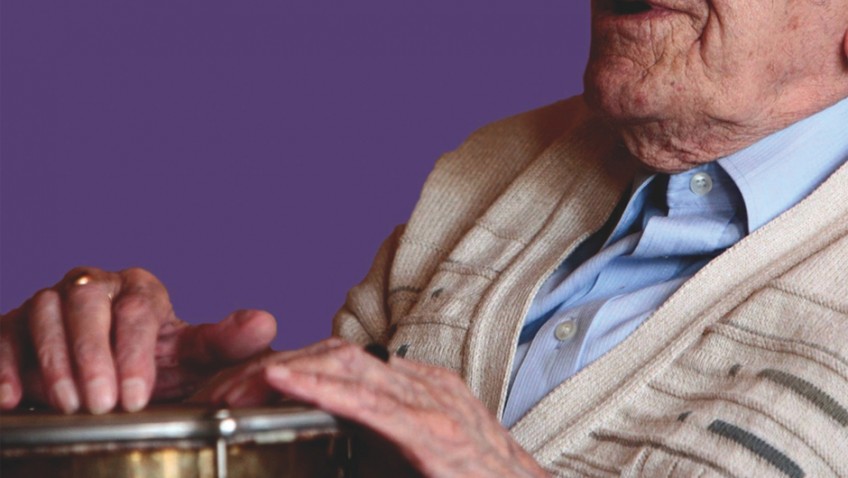As human beings, music plays a fundamental role in our identity, culture, heritage and spiritual beliefs. It is a powerful medium which can affect us all deeply. Playing a musical instrument, being part of a choir or in a band, listening to music – these are all ways in which we can engage in music. They help us to connect with ourselves and others. Music can be exciting or calming, joyful or poignant. It can stir memories and powerfully resonate with our feelings, helping us to express them and communicate with others. There are many music projects available and aimed at people living with dementia. They are not music therapy but can offer people with dementia a great deal of enjoyment.
Emotional wellbeing
Music therapists use music’s power to facilitate positive changes in emotional wellbeing and communication through the engagement in live musical interaction between client and therapist.
Oliver Sachs, in his book ‘Musicophilia’, described music therapy as ‘seeking to address the emotions, cognitive powers, thoughts, and memories, the surviving “self” of the patient, to stimulate these and bring them to the fore. It aims to enrich and enlarge existence, to give freedom, stability, organisation and focus‘.
For people living with dementia, music therapy engages healthy parts of the brain to address the primary and secondary effects of the condition, such as loss of confidence and self-worth, language deterioration, low mood and feelings of frustration, irritability and anxiety.
Donald was quiet and almost apologetic of his presence socially. It took him time to find the words that he was looking for and this meant that often, he would not talk rather than putting himself through the trauma of stumbling over words. In his music therapy sessions Donald improvised on the xylophone while the therapist followed the shape and emotional content of his music on the piano. She was able to support and encourage his sense of self and promote his confidence. He commented that he felt “exhilarated” and slowly explained that he found improvising music easier than talking.
Central to how music therapy works is the therapeutic relationship that is established and developed, through engagement in live musical interaction and play between a therapist and client.
A wide range of musical styles and instruments can be used, including the voice, and the music is often improvised. Using music in this way enables clients to create their own unique musical language in which to explore and connect with the world and express themselves. For someone living with dementia and for those who care for them, these moments of connection through music can be transformative.
Music therapy is a particularly effective clinical intervention for people who have difficulty communicating verbally as musical participation and response does not depend on the ability to speak. Most people living with dementia in the later stages are able to access memories from long ago, but not recent events. The brain remembers emotional experiences more easily than facts and the emotional nature of music helps these memories come to the fore and helps maintain connections with loved ones and carers.
For Donald, isolated by his degenerating verbal abilities, the realisation that he could communicate his emotions through music to someone who could contain and hold them and that he could create something worthwhile that was his, was a life affirming process. For thirty minutes a week, he was able to communicate with another person without it provoking worry and stress. The sessions moved at his pace, with no musical goals, only the therapeutic aims of enabling him to communicate and express himself in order to help to reduce his anxiety and resultant agitation.
Quality of life
Music therapists work with people living with dementia to help maintain their quality of life and care, and look for appropriate ways to use music to help meet their psychological needs. They work with individuals, with families, and in groups. They can offer sessions in a person’s own home, in some hospitals, in residential care settings and day centres.
Music therapy is an established psychological clinical intervention, which is delivered by Health and Care Professions Council registered music therapists to help people whose lives have been affected by injury, illness or disability through supporting their psychological, emotional, cognitive, physical, communicative and social needs, connect with the world and express themselves.
To find a music therapist or to find out more about music therapy, please contact the British Association for Music Therapy (BAMT), the professional body representing music therapy and music therapists in the UK.
2nd Floor, 24 – 27 White Lion Street
London. N1 9PD
T: 020 7837 6100 W: www.bamt.org




